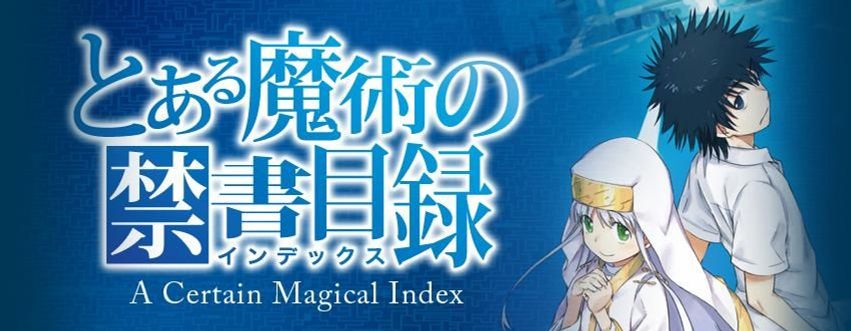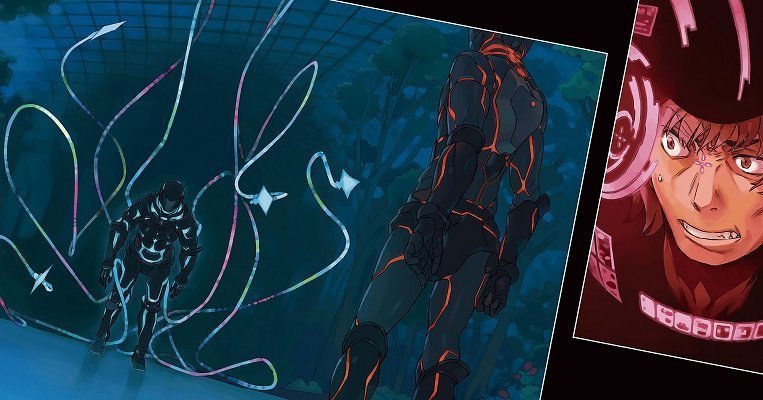A Certain Magical Index is an absolute titan amongst light novels, yielding in popularity only to Sword Art Online over the last decade. Given this status, it is widely considered a staple for light novel readers, and for good reason: the characterisation, world building, and narrative of the series are intricate and complexly constructed, providing all the more reason for those unacquainted with the series (or to the light novels specifically) to take it up.
Dive into Endless Stories with Webnovel
From exclusive novels, fanfics, R18 stories to popular comics like Omniscient Reader's Viewpoint, Only I level up (Solo Leveling), and Tales of Demons and Gods, Webnovel is your gateway to a universe of captivating stories.
Related: 29 Best Chinese Anime (Donghua): Exploring Chinese Anime Universe
Index finds its setting in a world where science fiction is juxtaposed to the mystic arts, and follows Touma Kamijou, a student of the technologically advanced Academy City, the bastion of the science faction. At the pinnacle of their technology is the development of paranormal abilities in its students, but Touma himself lacks any such power. However, he does possess in his right hand the Imagine Breaker, which nullifies the supernatural. The haplessly misfortunate student is brought to the centre of the conflict between the magic and science sides when he encounters the Index Librorum Prohibitorum, a nun of the Church of England and a linchpin of the magic side, as she is pursued by sorcerers.
By my experience, most are introduced to Index by its anime adaptation, or its equally popular spinoff, A Certain Scientific Railgun. Railgun, while fairly well received, is ultimately a side story with its own tale to tell, with limitations to its scale and exploration of the world due to taking a backseat to Index in the wider scale of things. On the other hand, the Index anime adaptation is decidedly mediocre, even at its highest points, especially compared to the high standard set by the original work, further justifying newcomers and old fans alike to pick up the light novels.

The plus points
As of early 2020, Index consists of two completed light novel series, retroactively dubbed the Old Testament and New Testament, as well as the ongoing Genesis Testament, collectively chocking in 46 volumes. As expansive as this seems though, it ties into the inherent appeal of the world of Index, something further demonstrated by the endless spinoffs that the series pumps out. The plot adds to the world building, and the world building expands to drive the plot, creating a progressive story that always feels planned and deliberate, as opposed to forced.
Related: Is Kengan Ashura Worth Reading?
The narrative discourse of the series is multifacetted, in that it delves into varied elements of the world that it inhabits, with most characters being driven by their background and conditions. As such, everything in the series, or even the franchise, is painted as a product of circumstances, adding an element of grey to the idea of morality: there is no marketed right or wrong beyond one’s capability to justify their actions, allowing for dynamic characterisation that can generate equally sympathetic or despicable characters and machinations.
However, it’s fundamentally the characters themselves that keep the series afloat amidst methodical buildup and exposition dumps (especially around the beginning of the series). The biggest complaint that readers of the novels have, and rightfully so, is the misrepresentation of characters in the anime adaptations, as they come across as superficial stock characters without the novel’s prose exploring their deeper psyche and philosophies, which are all the more important given fluctuating ideas of morality explored throughout the series. But even in a vacuum, evolving perspectives and flexible characterisation keep the novels engaging in areas that their medium is otherwise inconducive to. Add to the mix an ensemble cast and numerous points of view, and there are times the series can survive off of nothing but banter and the sheer thrill of certain characters interacting.

And that brings me to the action and world systems. As comprehensive as these are, however, they can’t avoid being highly technical in nature. The science side mainly consists of supernaturally equipped individuals known as “Espers”, capable of creating specific paranormal phenomenon. While the basis for the phenomenon themselves is fictional, it’s pure science once the powers come out. While certain abilities can be more abstract (such as telepathy and psychometry), those that can be subject to the laws of the natural sciences in their applications (like electrokinesis), are subject to them, to the extent that they read like the contents of a physics textbook, and in the best possible way.
The magic side is more rooted in the conventionally superstitious, but has its own share of depth which is arguably more driven than the science side itself. Leveraging real life history and lore, not to mention principles of actual occult, an electrifying degree of thought goes into even the most basic aspects of the magic system. What this means is that every fight and struggle becomes a battle of information: how much do you know about your opponent, how creative can you use your own power, do you recognise the limitations of applying it as such, and so on. But in exchange for intricate detail in these machinations, these fights are potentially difficult to comprehend. Once again, they become shallow and convenient on a superficial level. It also hurts that some detail is genuinely complex, and not always explained (you’ll excuse me for not having written a thesis on the Rosicrucian interpretation of the Sephira), but it’s frankly nothing a little research (or just glossing over the details) can’t remedy.

The minus points
The unwelcome elements, though, are absolutely stock in nature, and while you can get used to them, they still threaten your suspension of disbelief in an otherwise carefully constructed work. This brings me to the ecchi, and when it rears its ugly head, it’s a painful reminder of Index‘s foundation in an era where harem protagonists and rampant sexualisation of female characters were picking up steam; the latter in particular can be uncomfortable when you’re reading text (it would appear that ecchi as a concept is even weirder on paper), and the use of common character tropes (tsundere, genki girl, etc.) becomes irking, especially with one-off recurring characters who never have a chance to develop.
Related: 16 Best Manhwa Like Solo Leveling With Op Mc
Finally, there’s the writing itself. The fact stands that you will likely have to delve into fan translations to experience the New Testament, widely considered the defining portion of the series, and it’s clear as day (even in the official translations of the Old Testament), that the series is verbose, making it difficult to read at times (don’t even get me started on what ecchi is like in prose).
Furthermore, the aforementioned buildup and exposition dumps are all the more pertinent in the opening acts of the series, which can put off many people before it finds its groove. Nonetheless, those that stick around and let the world, characters, and eccentricities of the writing grow on them will find a uniquely fulfilling experience, as the continually expanding world of Index can be accurately described as surgical.
Verdict
For all the praise I may be giving this series, I find it a slightly hard recommend. Even within the scope of official translations, the faults of the series still show, not to mention both the literary and time commitment required to gauge an accurate understanding of Index as a whole, which I fear may be irreconcilable with the fast paced atmosphere of modern seasonal entertainment. Do I think certain tools (patience, grit, and attention to detail) are required for the job? Well… yes. Can I still recommend it for most? Yes.
Checkout Other Posts:
